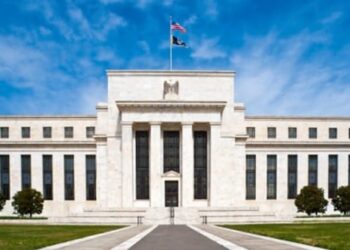Addressing the recent Schroders Digital International Media Conference, the asset manager’s chief economist, Keith Wade, said while the economic recovery from the COVID pandemic was being bolstered by positive data from the US, emerging markets and Asia, a lot could depend on the speed at which a vaccine could be rolled out in 2021.
Mr Wade referenced data from the Good Judgement Project, a panel of international “super-forecasters” used by governments and corporates to predict global events and trends.
“Our forecasts are based on the idea that by the middle of next year the majority of people in the US and a large percentage of people in Europe will have had a vaccine, that means they will be building up that immunity and we can begin to relax restrictions on social distancing and see the service sector come back to normal,” he said.
“It could still take some time to fully distribute on a large scale – when you look at the spread of responses from super forecasters, they are saying there’s still a 50 per cent probability that we won’t see anything until the second half of next year, with 21 per cent saying we won’t get the full distribution of 200 million [in the US] until 2022.
“This is going to be Joe Biden’s first big test, getting the vaccine distributed across the US, and it will be the test for governments everywhere to see that vaccine distributed.”
A key risk related to this, Mr Wade said, was the President-elect’s ability to get consensus from a divided US Congress and Senate to extend additional unemployment benefits for out-of-work Americans, which were the main mechanism currently propping up US economic activity.
“The US added $600 per week [to unemployment] and that expired at the end of July – we expected congress to come to an agreement on extending it, but they didn’t,” he said.
“Trump signed an executive order to provide $300 a week – half the extra being provided before – so that unemployment benefit has fallen off and it will expire completely at the end of this year unless congress can do a deal.
“The issue here is if you didn’t have those unemployment benefits, there has been a big drop in income in the US, and without those benefits the household sector is going to be hit quite hard. There’s a risk there and the first thing Biden has to do is get a stimulus plan and bill signed.”
Similarly, Mr Wade said Mr Biden was likely to face difficulty negotiating a significant package of overall economic stimulus, although his track record of engaging with Republican Senate leader Mitch McConnell had historically been positive.
“Before the election, Biden was talking about a stimulus bill of $2-3 trillion but that’s harder to get through now. The Republican congress is talking about $1 trillion in stimulus, so that’s going to be scaled back,” he said.
“A lot will depend whether Biden is going to be able to get on with Mitch McConnell and persuade him it’s in everyone’s interest to do a deal. As vice president, Biden and McConnell got together to sort out the debt ceiling and the fiscal cliff, so what Biden’s built his reputation on is that he can do deals.
“It will be a reasonable stimulus, but actually what you’re doing is trying to fill a hole in the economy created by COVID. We don’t think the vaccine will really make a difference until the second half of next year, so it’s important we get that stimulus.”







